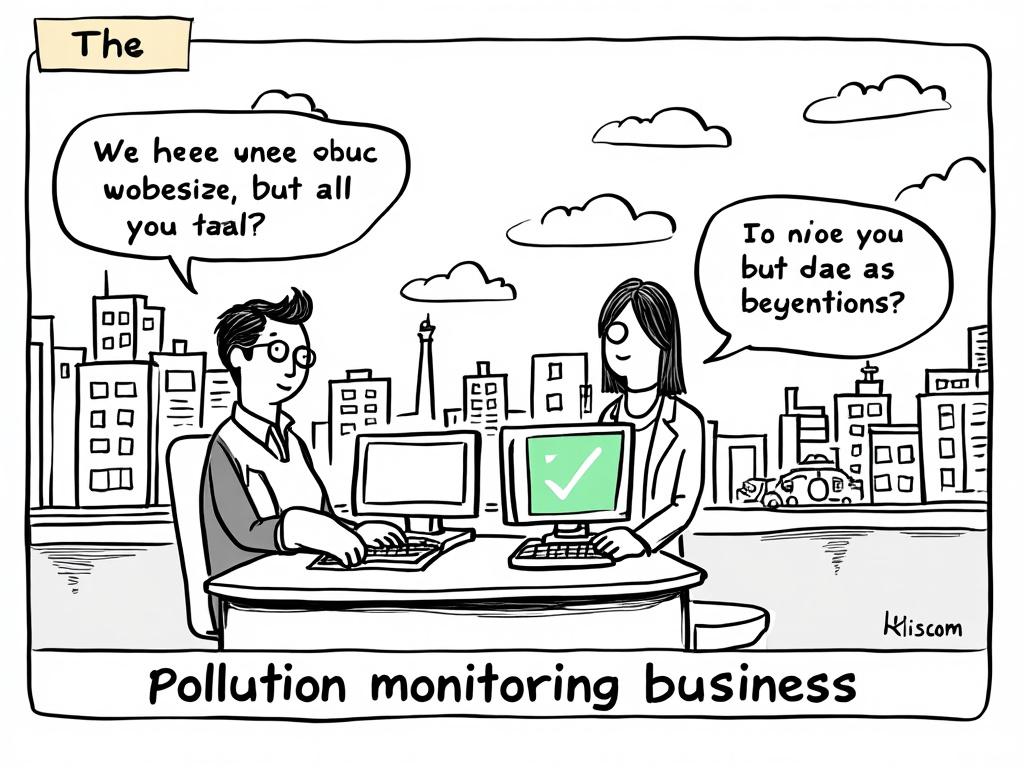
Air and Water Pollution Levels in Greece: Navigating Environmental Challenges in the Mediterranean
Reading time: 12 minutes
Ever wondered how Greece’s stunning coastlines and ancient cities balance environmental protection with modern development? You’re not alone. Let’s explore the complex reality of pollution levels across this Mediterranean nation and what it means for residents, visitors, and potential investors.
Table of Contents
- Current State of Air and Water Quality
- Air Pollution: Urban Smog Meets Island Breezes
- Water Quality: From Aegean Shores to Mountain Springs
- Regional Variations and Hotspots
- Government Initiatives and EU Compliance
- Impact on Daily Life and Property Values
- Your Environmental Roadmap Forward
- Frequently Asked Questions
Current State of Air and Water Quality
Greece presents a fascinating environmental paradox. While blessed with pristine islands and crystal-clear waters that attract millions of tourists annually, the country faces significant pollution challenges, particularly in urban centers like Athens and Thessaloniki.
According to the European Environment Agency’s 2023 report, Greece ranks among the middle tier of EU countries for overall environmental quality. Here’s the straight talk: the country has made remarkable progress since the 1990s, but still grapples with specific pollution hotspots that demand attention.
Key Environmental Indicators at a Glance
| Indicator | Greece Ranking (EU-27) | 2023 Score | Trend (5 years) |
|---|---|---|---|
| Air Quality Index | 18th | 54/100 | ↗ Improving |
| Water Quality | 12th | 72/100 | → Stable |
| Marine Environment | 8th | 78/100 | ↗ Improving |
| Waste Management | 22nd | 48/100 | ↗ Improving |
Air Pollution: Urban Smog Meets Island Breezes
Athens serves as Greece’s environmental complexity epicenter. The city experiences what locals call “nefos” – a brownish smog cloud that settles over the Attica basin during summer months and winter inversions.
The Athens Air Quality Challenge
PM2.5 and PM10 concentrations in Athens regularly exceed WHO guidelines, particularly during July and August when temperatures soar above 35°C. Dr. Maria Kanakidou, atmospheric scientist at the University of Crete, explains: “Athens faces a perfect storm of geographic constraints, traffic density, and meteorological conditions that trap pollutants.”
Quick Scenario: Imagine you’re considering buy property in greece in central Athens. What air quality factors should influence your decision? Let’s examine the data:
Athens Air Quality Comparison (Annual Averages)
15 μg/m³ (WHO limit: 5 μg/m³)
22 μg/m³ (WHO limit: 15 μg/m³)
28 μg/m³ (WHO limit: 10 μg/m³)
95 μg/m³ (WHO limit: 100 μg/m³)
Regional Air Quality Variations
Thessaloniki faces similar challenges but benefits from stronger Aegean winds that help disperse pollutants. The city’s PM2.5 levels average 12 μg/m³ – still above WHO recommendations but notably better than Athens.
Island communities like Santorini and Mykonos maintain excellent air quality year-round, with pollution levels consistently below EU thresholds. However, summer tourist influxes create temporary spikes in local emissions.
Pro Tip: If air quality is a priority for your Greek property investment, consider locations in northern suburbs of Athens (like Kifisia) or island properties where sea breezes provide natural ventilation.
Water Quality: From Aegean Shores to Mountain Springs
Greece’s water story tells two distinct narratives: exceptional marine environments and challenging municipal water systems.
Marine Water Excellence
The Mediterranean surrounding Greece boasts some of Europe’s cleanest coastal waters. The EU’s 2023 Bathing Water Report classified 95.8% of Greek beaches as “excellent” – ranking the country 3rd in the EU for coastal water quality.
Case Study: Zakynthos Marine Park demonstrates Greece’s environmental success stories. Despite hosting 500,000+ annual visitors, the island maintains pristine waters through strict development controls and active conservation programs.
Municipal Water System Challenges
Urban water infrastructure presents ongoing challenges. Athens Water Supply and Sewerage Company (EYDAP) serves 4.3 million residents, but aging infrastructure creates quality inconsistencies.
Key Water Quality Issues:
- Chlorine taste and odor – Common in Athens and Thessaloniki due to heavy disinfection requirements
- Seasonal shortages – Islands like Paros and Naxos face summer water stress
- Agricultural runoff – Affects groundwater in Thessaly and Macedonia regions
- Industrial contamination – Localized issues near Elefsina and Volos industrial zones
Well, here’s the practical reality: Most Greek residents and property owners invest in home filtration systems or rely on bottled water for drinking.
Regional Variations and Hotspots
Northern Greece: Industrial Legacy Meets Natural Beauty
Thessaloniki and surrounding industrial areas face the country’s most complex pollution challenges. The Axios River delta, while ecologically significant, carries agricultural and industrial pollutants from North Macedonia and Bulgaria.
Practical Roadmap for Northern Greece:
- Air Quality Monitoring – Check real-time data via Greece’s National Observatory network
- Seasonal Considerations – Winter heating and summer wildfires create pollution peaks
- Location Selection – Coastal areas benefit from wind dispersion effects
Central Greece: Urban Concentration Effects
The Attica region concentrates 40% of Greece’s population, creating environmental pressure points. Beyond Athens, cities like Piraeus and Elefsina face industrial pollution from shipping and manufacturing.
Attica Environmental Hotspots:
- Keratsini-Drapetsona: Industrial PM emissions
- Piraeus Port: Maritime air pollution
- Elefsina: Petrochemical industry impacts
- Lavrio: Legacy mining contamination
Island Paradise: Minimal Pollution, Maximum Sustainability Challenges
Greek islands maintain excellent environmental quality but face sustainability pressures from tourism. Santorini receives 2 million annual visitors – creating waste management and water supply challenges that don’t necessarily translate to pollution but affect environmental balance.
Government Initiatives and EU Compliance
Greece has invested €8.2 billion in environmental infrastructure since 2014, primarily through EU structural funds. The results show measurable improvements across multiple indicators.
Major Environmental Programs
Green Fund initiatives have established 200+ air quality monitoring stations nationwide, providing real-time pollution data to residents and policymakers.
The Athens Traffic Ring implementation reduced central city PM10 levels by 18% between 2019-2023, demonstrating effective urban planning impacts.
Ministry of Environment data shows wastewater treatment coverage increased from 65% to 89% nationally since 2015, significantly improving coastal water quality.
EU Compliance Status
Greece currently faces EU infringement procedures for air quality in Athens and Thessaloniki but has avoided financial penalties through demonstrated improvement programs.
The strategic reality: EU pressure creates accountability that drives consistent environmental progress, making Greece an increasingly attractive destination for environmentally conscious investors.
Impact on Daily Life and Property Values
Environmental quality directly influences Greek real estate markets and lifestyle decisions. Properties in low-pollution zones command premium prices, while areas with environmental challenges offer investment opportunities for buyers willing to accept trade-offs.
Real Estate Market Implications
Case Study: Kifisia vs. Central Athens property prices reflect environmental premiums. Kifisia properties average €3,200/m² compared to €2,400/m² in central Athens – a 33% premium partially attributed to superior air quality and green space access.
Island property markets benefit significantly from pristine environmental conditions. Paros and Naxos have seen 45% price appreciation since 2019, driven partly by their reputation for clean air and water.
Daily Life Adaptations
Greek residents have developed practical strategies for managing pollution exposure:
- Timing outdoor activities – Early morning and evening exercise when air quality improves
- Home air purification – 68% of Athens households use air purifiers during summer months
- Water filtration – Standard practice in urban areas
- Seasonal relocations – Many Athenians maintain island or mountain properties for summer escapes
Ready to transform environmental awareness into smart property decisions? Understanding pollution patterns helps identify both risks and opportunities in Greece’s diverse real estate market.
Your Environmental Roadmap Forward
Greece’s environmental landscape offers both challenges and remarkable opportunities for informed decision-makers. The key lies in understanding regional variations and timing your choices strategically.
Immediate Action Steps:
1. Location Intelligence
Research specific neighborhoods using Greece’s National Observatory air quality database. Focus on areas with consistent green ratings and consider prevailing wind patterns that affect pollution dispersion.
2. Seasonal Planning
Time property visits and decisions around seasonal pollution patterns. Spring and early fall offer the most accurate environmental assessments, avoiding summer tourism spikes and winter inversion periods.
3. Infrastructure Assessment
Evaluate local water treatment facilities, waste management systems, and public transportation access. These factors indicate long-term environmental trajectory and property value stability.
4. Investment Diversification
Consider combining urban convenience with environmental quality through strategic property portfolios – perhaps a city apartment for business needs and an island retreat for lifestyle balance.
5. Future-Proofing Strategies
Monitor EU environmental directives and Greek compliance timelines. Areas currently facing challenges often present the greatest improvement potential and investment upside.
Greece’s environmental future looks increasingly promising, with €12 billion in additional EU Green Deal funding allocated through 2030. This positions the country for continued air and water quality improvements while maintaining its natural Mediterranean advantages.
The intersection of environmental quality and investment opportunity in Greece creates unique possibilities for those who understand the landscape. Whether you’re seeking pristine island living or urban convenience with improving conditions, the key is matching your priorities with Greece’s diverse environmental offerings.
What environmental factors matter most for your Greek property dreams, and how will you balance them with your lifestyle and investment goals?
Frequently Asked Questions
Is it safe to drink tap water in Greece?
Tap water in Greece meets EU safety standards and is technically safe to drink. However, taste and odor issues from chlorination lead most residents to use filtration systems or bottled water. Islands may have seasonal quality variations due to water scarcity and desalination processes. For property investments, budget for water filtration systems in urban areas.
How does Athens air pollution compare to other European capitals?
Athens ranks among the more polluted European capitals but shows consistent improvement. PM2.5 levels average 15 μg/m³ compared to London (12 μg/m³) and Rome (17 μg/m³). The city’s unique geography creates pollution trapping effects, but EU compliance programs are driving measurable air quality improvements year over year.
Which Greek regions offer the best environmental quality for property investment?
The Cyclades islands (Paros, Naxos) and northern Athens suburbs consistently rank highest for air and water quality. Crete’s northern coast balances environmental quality with infrastructure development. Avoid industrial zones near Thessaloniki, Elefsina, and Volos for optimal environmental conditions. Consider seasonal tourism impacts on island communities when evaluating long-term sustainability.

Article reviewed by Charlotte Ellsworth, Commercial Real Estate Developer | Transforming Urban Landscapes, on June 4, 2025




